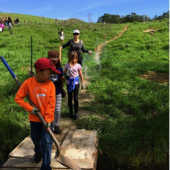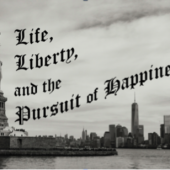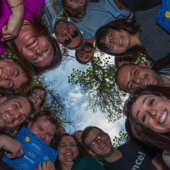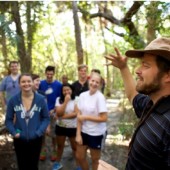Abstract: Is it important to educate the media on sustainability? This paper debates the need for sustainability education to be nurtured among media practitioners in Malaysia. Media play a vital role in educating society in three main areas of sustainability including environment, economy, and social justice. In this paper, six media practitioners from two local Malaysian printed media organizations, The Star and Utusan Malaysia, were interviewed to gauge their understanding on sustainability education, perceptions on their pivotal role in sustainability education, and the challenges they face in the process of educating society about sustainability issues. The findings of this study show that most Malaysian media practitioners displayed a clear understanding about sustainability education and they also realized their responsibility for not only informing but also educating society about sustainability issues and the importance of sustainable lifestyles. The ultimate challenge the media faces in terms of sustainability education comes from the media organizations themselves, such as the existence of gatekeepers who control the news. Overall, this study demonstrates that the Malaysian media’s involvement in sustainability education is no longer a myth. We hope that this study may provide direction in sustainability education not only among the Malaysian printed media, but also for developing and Southeast Asian countries, and the rest of the world.
Continue Reading
Abstract: Scientific literacy through critical-thinking and problem-solving is an important part of the future of our nation. Understanding of science and engineering concepts creates informed citizens who can contribute to democratic conversations and be knowledge consumers. Scientific literacy also requires an understanding of data and data analysis. This lesson uses Global Climate Change as a platform for understanding graphical data by exploring the manipulations of graphs and helping students recognize the ways in which perspective and scale play a role in graphing data. The lesson provided is designed to be covered in 90 minutes with high school students. Using four graphs of global temperature change, students will work in groups to analyze graphs and recognize the way in which scaling can play an integral role in the perception of information as well as an understanding of the degree of temperature change over periods of time due to global climate change.
Continue Reading
Future casting for us begins with going back — to the real basics, to understanding our place and the people who sustained themselves here for hundreds of years, engaging in real-world problem solving in pursuit of “the right kind of change at the right time.”
Continue Reading
In our state of acute global crisis, we urgently need new leaders. In this short essay, I would like to sketch out my vision of such a new kind of leadership.
Continue Reading
Life, Liberty and the Pursuit of Happiness: Reframing our Goals for Education
Continue Reading
Abstract: When examining energy consumption in human history, it is evident that society is entering a new era where the costs of energy generation from renewable sources are now competitive with fossil fuel generation. In light of this advance, this report examines recent milestones in the renewable energy sector, and projects what the near future might hold. In the years ahead, growth in the renewable industry will create increased demand for a trained workforce of scientists, engineers, and technicians with knowledge of renewable energy. Faculty development and educational programs will play a key role in preparing the next generation of renewable energy professionals. This report highlights the impact of one such initiative that was funded by the National Science Foundation. Educators are called to join the effort to create a sustainable future powered by renewable energy.
Continue Reading
Wheeler JSE March 2017_Future Casting Issue PDF Abstract: Theories of sustainable architecture that address sexual difference are rare in an architectural context, whether in the United States or Europe, and this paper proposes a critical perspective on architectural design using sustainable schools as an example and adopting the question of sexual difference. Informed by the […]
Continue Reading
Abstract: In order to effectively address global sustainability challenges, a wide spectrum of society must be engaged. Universities generate knowledge, enhance understanding of sustainability problems and identify potential pathways to solutions. However, the information they produce often does not reach the public sector. Primary and secondary schools contain expert teachers and science communicators, but they are often limited by educational standards and other teaching duties. On the other hand, museums, such as science and natural history museums, are particularly skilled at translating scientific information so that it engages and excites the general public without the limiting expectations of school systems. Thus, partnerships between museums and universities offer great potential for disseminating sustainability knowledge and solutions on a global scale. However, given the complexity of sustainability problems, partnerships between universities and museums require a deep level of collaboration beyond the scope of information or resource exchange. In this article, we explore our experiences collaborating with museums, reflecting on challenges and, ultimately, identifying four main focal areas to successful, transformational collaborations. Though we focus on museum partnerships from the university perspective, we contend that any institution can apply these four steps to make progress on wicked problems that require immediate action.
Continue Reading
Abstract: The study was a descriptive and correlational quantitative study of U. S. Department of Education Green Ribbon Schools (ED-GRS) teachers’ perceptions of ecological and democratic principles in their schools. Descriptive statistics described the ED-GRS teachers’ perceptions of how the ecological and democratic principles operate in their schools. Correlations were used to look deeper at the ecological and democratic principles and to what extent these principles were related. Teachers in ED-GRS award winning schools reported evidence of ecological and democratic principles. The findings suggested that ecological and democratic principles had a positive relationship among them. In addition, there were seven principles that had strong, positive relationships among each other as perceived by teachers in ED-GRS award winning schools. I concluded from the data that sustaining ecological change requires evidence of democratic leadership and community. This study contributes to the field of educational leadership by providing a descriptive analysis of a newly-created United States Department of Education award. In addition, this study provides schools and school leaders with information as how to make sustainable changes that lead to healthy, high performance schools including a theoretical framework to provide guidance in making the sustainable changes.
Continue Reading
Abstract: Healing a world on the brink of eco-social collapse requires an understanding of how planetary health has declined, how sustainable societies worked before, and how we can restore them. Global colonizing processes established a worldview of economic domination and competition that has had detrimental impacts upon our social and environmental systems. Archeological and mathematical studies of the rise and fall of human civilizations concluded that egalitarian societies with low environmental exploitation were the longest lasting in human history, and that high economic stratification, and/or overexploitation of resources were precursors to societal collapse. Indigenous community systems were relatively egalitarian and environmentally sustainable. Hypothetically, if we use Indigenous eco-social systems as a guide for community planning, then eco-social collapse can be averted, and eco-social resilience and sustainability can be restored. A framework of Indigenous principles and practices is included, with examples of goals, activities and indicators.
Continue Reading
Abstract: This study sought to determine the influence of environmentally themed higher education courses upon students’ self-perceptions of their environmental literacy. Past research has suggested mixed conclusions about the objectives, approaches, and impacts of environmental and sustainability education in higher education. This study assessed environmental literacy and the influence of pedagogical perspective and instructor emphasis in environmentally themed higher education courses. Using the Hollweg et al. (2011) framework for environmental literacy, the study assessed students’ self-perceptions of their environmental literacy in a pre- and post-test format. Data were analyzed using a paired samples t-test and one-way ANOVA with a Tukey HSD post-hoc test. The results of the study showed that environmentally themed higher education courses are having a significant influence on students’ self-perceptions of their environmental literacy. However, instructors seemed to emphasize behavior least of the four aspects of environmental literacy. These findings suggest that environmentally themed courses are having a strong impact, yet further integration of environmental education principles may be meaningful. This study clarifies the impact of environmentally themed higher education courses. The distinction between pedagogical perspectives delineates new understandings of the differences in environmental literacy change. This study serves as a ground for future research to build the implementation of environmental education in higher education.
Continue Reading
Abstract: Inspired by the entanglements of the Cosmos, this essay is a response to the JSE special call for papers on future casting sustainability education. The author’s approach reflects an integrated view of humans, moving beyond Anthropocene, capitalism, and Donald Trump to the idea of the Chthulucene, an era of reciprocity amongst human and more-than-human. In challenging times, such as this, sustainability education can look towards the future through hopeful pedagogies of interconnection through reciprocity, storytelling, and embracing the bio-cultural diversity of Earth.
Continue Reading
Abstract: In this article, I explore the future of higher education within the context of teaching and learning for sustainability. Challenges currently facing sustainability education are identified along with opportunities to face these challenges in ways that are transdisciplinary and holistic. I make the case that envisioning the future of sustainability education enables practitioners and educational theorists to better meet the needs of today’s generation without compromising the ability of future generations to meet their needs (World Commission on Environment and Development, 1987). My vision of the future of sustainability education in higher education is grounded in transformative, experiential, and place-based approaches. Engaging students in authentic inquiry in the classroom enables students to become better citizens and stronger problem solvers within the context of sustainability and beyond.
Continue Reading